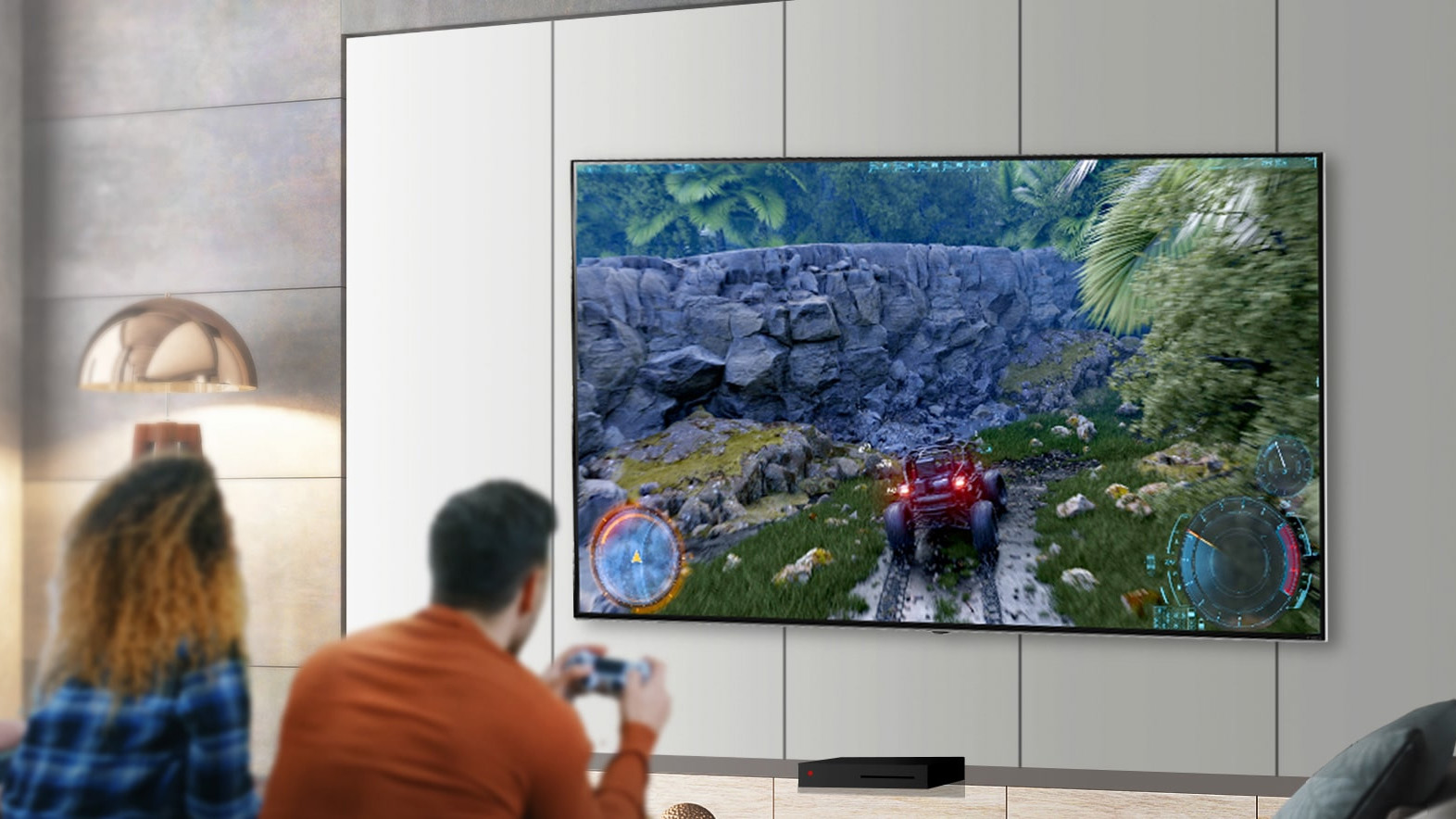
Get all the latest news, reviews, deals and buying guides on gorgeous tech, home and active products from the T3 experts
You are now subscribed
Your newsletter sign-up was successful
If you're looking for the best TV, chances are you've fallen upon many an acronym in the process. That's likely down to the HDMI 2.1 specification, which introduces VRR (variable refresh rate), HFR (which is High Frame Rate, i.e. 120Hz refresh rate at 4K resolution), plus another feature and the very reason you're here: ALLM.
ALLM stands for Auto Low-Latency Mode and it's part of that trio of HDMI 2.1 features (VRR, ALLM, HFR). But why's it useful? Well, if you're a gamer on the hunt for the best gaming TV then you'll absolutely want such specification and ALLM enabled, which often (but not always) comes in the form of Game Mode.
What does ALLM actually do?
TV technology has advanced a lot over the years. To make images look 'better', manufacturers have introduced all manner of processing technologies. From upscaling, to de-noising, to frame insertion, and beyond, your TV's processor is probably doing a lot more than you know about or give it credit for.
But those technologies take time. Not lots of time, mind, we're talking milliseconds here, but enough time for there to be some lag: i.e. a delay between what the TV is receiving and what it's actually showing you, the viewer. That doesn't play perfectly with high frame-rate games where graphics rendering effects are already taking place at the source.
The point of ALLM is to switch all this processing stuff off and allow the source – such as a PlayStation 5 or Xbox Series X – to take control, thus lowering the input lag, allowing for a better visual experience. Even the HDMI consortium describes ALLM as "the ideal latency setting to automatically be set allowing for smooth, lag-free and uninterrupted viewing and interactivity".
Which TVs have the lowest input lag?
It's therefore a more connected experience, too, as the very best TV's Game Modes, such as the LG C2 and Samsung QN95B, can hit sub-10ms input lag (we'd say sub-20ms is acceptable in such a mode, but in single figures is pretty exceptional and hard to distinguish when playing, even if you're an eSports pro).
The other great thing about ALLM is that, as the first letter of that acronym tells us, it's automatic. So when a game signal ceases to be detected a compatible TV will know and disengage Game Mode, meaning your sports or movie-watching antics can take advantage of different processing benefits without you needing to necessarily worry about it.
Get all the latest news, reviews, deals and buying guides on gorgeous tech, home and active products from the T3 experts

Mike is T3's Tech Editor. He's been writing about consumer technology for 15 years and his beat covers phones – of which he's seen hundreds of handsets over the years – laptops, gaming, TV & audio, and more. There's little consumer tech he's not had a hand at trying, and with extensive commissioning and editing experience, he knows the industry inside out. As the former Reviews Editor at Pocket-lint for 10 years where he furthered his knowledge and expertise, whilst writing about literally thousands of products, he's also provided work for publications such as Wired, The Guardian, Metro, and more.
